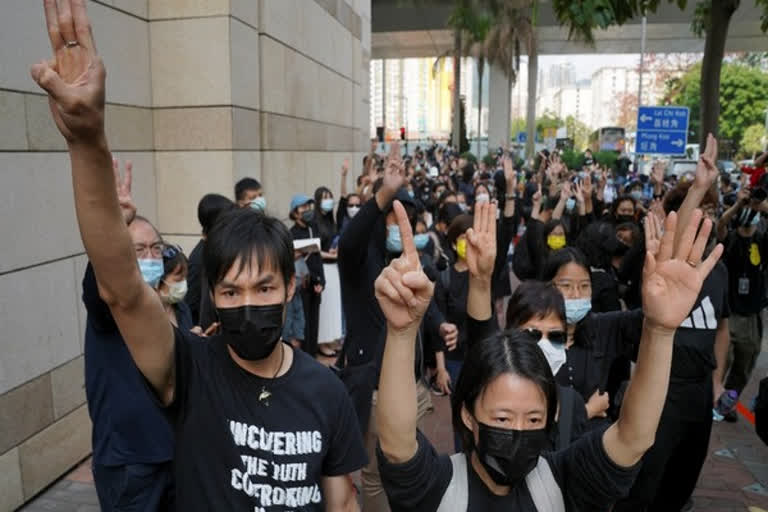Hong Kong: The crackdown by pro-Chinese authorities following last year's anti-government protests has affected young people, including students or college-educated, in Hong Kong and filled their future with dim job prospects and the unending threat of another arrest.
Over 2,500 people are being prosecuted on various charges for their roles in the protests, according to the police. The authorities are still working through a backlog of potential prosecutions of the more than 10,000 arrested between June 2019 and March of this year.
Nearly 300 have been sentenced to prison as of the end of last year, a sizable number for a city with an incarcerated population of about 7,000 people.
Hundreds of protesters, many students or college-educated, face potentially stiff sentences after Beijing's crackdown. Those behind bars already battle isolation and disillusionment, New York Times reported.
According to New York Times, Beijing's imposition last year of a national security law gives prosecutors greater powers to target even more.
For many, that campaign has ended in courts and jails, crushed by tough new laws imposed by Beijing, mass arrests and the hazards of the coronavirus.
Now, with dim job prospects, a fraught political future and the unending threat of another arrest, those protesters are emblematic of the uncertainties facing the city's stricken democracy movement.
Read: Navigation error sends NASA's Mars helicopter on wild ride
China last year imposed a harsh national security law on Hong Kong following the anti-government protests. The protests were sparked by the now-withdrawn extradition bill with mainland China.
Since then, the pro-China Hong Kong administration has launched a crackdown against pro-democracy lawmakers, activists and businessman.
Hong Kong, which is a former British colony, came under Chinese control in 1997. Beijing has guaranteed Hong Kong a "high degree of autonomy" under the principle of "one country, two systems" while highlighting the concept of "Hong Kong people administering Hong Kong."
However, following the 2019 anti-government protests against China, the central government under President Xi Jinping imposed the National security law.
Read: US: Officers face murder charge in Black man's death
"Being sentenced to jail fractures people," said Alex Chow, a 30-year-old activist who spent a brief time in jail for his role as a leader of protests in 2014, a precursor to the 2019 demonstrations. He now lives in exile in the United States.
"It smashes your personal aspirations," he said. "It might change your life trajectory. You're locked in a cell for months or years. That disrupts everything. No one can really prepare for it."
It's still not fully clear how prison will affect the movement, Chow said. Many will be dissuaded by escalating punishments. A charge for illegal assembly once meant a fine or community service, he said, but now could mean prison.
"This is one of the intended outcomes produced by the national security law," he said. "They want to cut you off, to smash your connections and the solidarity and spirit of the movement."
(ANI)



